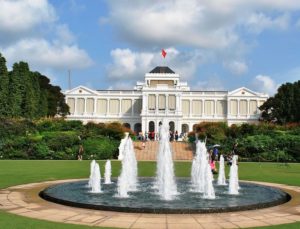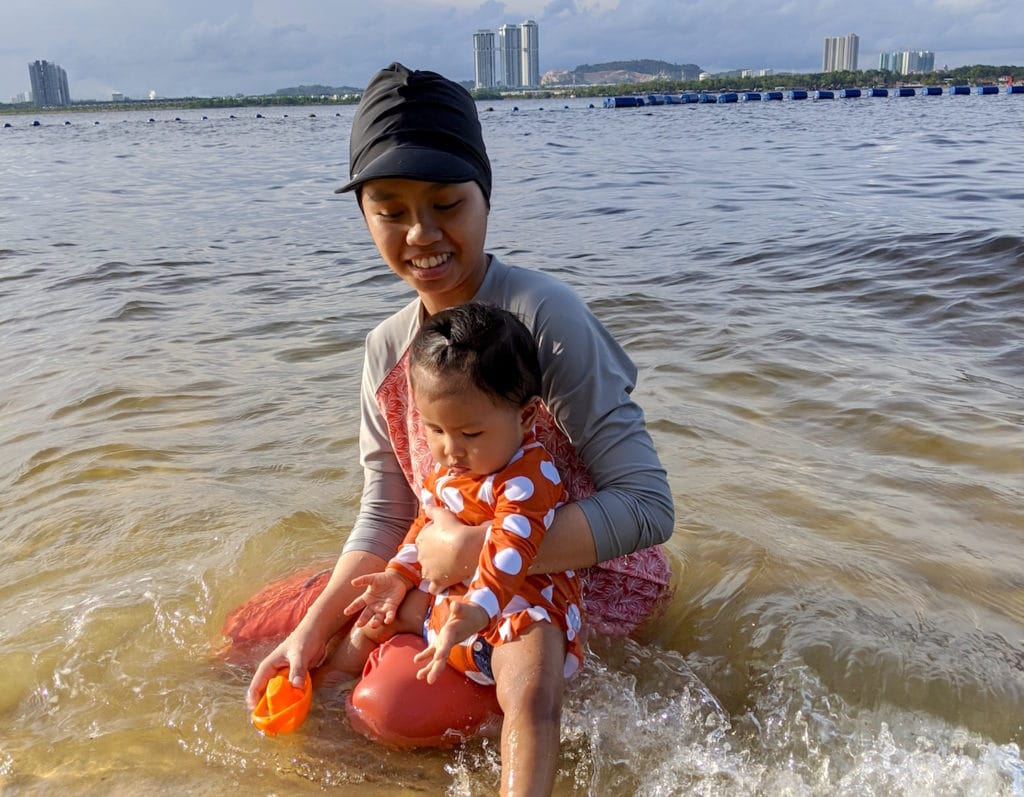

What did GE2020 mean to Millennial Singaporeans? A mama looks back on her first voting experience in the Singapore elections with an open letter of hope
How my Polling Day went:
1. Checked the crowd online: <10! (To my husband: “Swee*, let’s go!”)
2. Walked two blocks down our road to our designated polling station.
3. Rocked up to the first polling agent looking confident, poll card and IC in hand.
4. Got led to step forward as they checked our temperatures, then joined a short queue of 3 people. *I looked chill, but my nerves intensified*
5. Stepped forward to the presiding officer as she checked my poll card and read my name and poll card serial number out loud (Why did they do that? As if I wasn’t already nervous enough!).
6. Walked to the polling booth, spotted the self-inking pen then remembered Oh shoot! I actually brought a pen because I heard on Twitter that many of the self-inking pens weren’t working. Took out my own pen, placed it on the booth table, got nervous about marking the ‘wrong’ type of cross, tested the self-inking pen, then used it anyway #smh.
7. Folded the polling card and headed to the boxes, only to be faced with two boxes and four slots in total (why so many slots?!). Slipped the polling card in a random slot.
8. Walked out of the polling station feeling cold sweats break out under my mask.
My husband: “Why did you take so long?”
Me: “I couldn’t decide whether to use my own pen or the one they provided. I ended up stamping with theirs hahahaha.”(Disclaimer: not verbatim, I’m not sure how many haha’s I gave).
All in all, my first voting experience: smooth (really, we were in and out in under five minutes)! Not so smooth? The campaigning period that led up to Polling Day. I believe there was never a more documented or talked about election season than GE2020. Whether we liked it or not, Singapore elections were all anyone on our timelines discussed, be it on Instagram or Twitter (sorry Facebook, for us millennials you’re still mostly reserved for trashy recycled memes that we already saw and laughed about on Twitter two weeks ago). So I had to get informed.
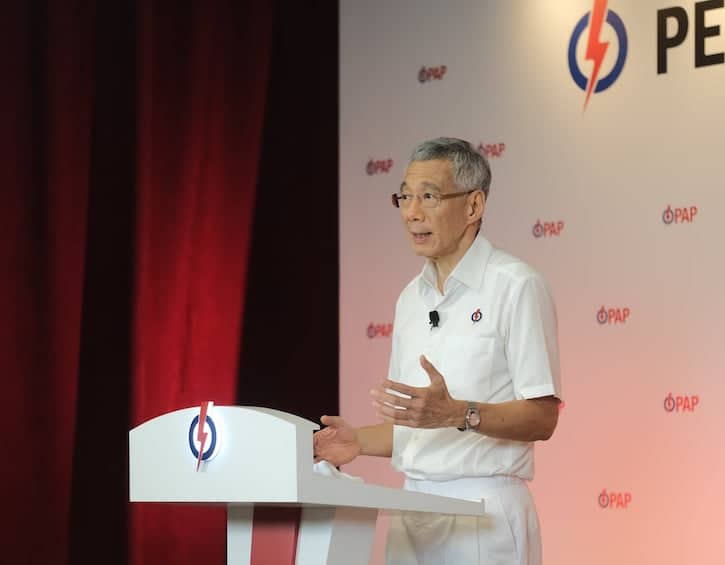

I’ll be honest – I didn’t look up every party’s manifesto to scrutinise their proposed policies or look into the backgrounds of each candidate. As with most of my news consumption and updates these days, I was on Twitter a lot and kept up with the Singapore elections commentary from fellow peers and politics experts.
We also witnessed how candidates across the political spectrum were put under the spotlight as never before: Prospective People’s Action Party candidate Ivan Lim got publicly called out for his conduct during his time in the Army (he then withdrew and did not contest). Singapore Democratic Party’s Dr Chee Soon Juan was challenged to explain himself on his ’10 million population’ comment. Raeesah Khan of the Workers’ Party was reported for past social media posts about double standards given to Singapore’s elites.
I have never been into local politics because it didn’t interest me and everything felt a little out of my depth. But this time, it’s different. As a first-time voter I realised I had the power to enact change in the way our country is run.
As much as we want to look at the bigger picture and applaud our country for how great it looks compared to others in Southeast Asia and even the ‘powerhouses’ of the world (and I agree, for the most part it does and it is!), we still have to look inward and address the problems faced by citizens on the ground.
I acknowledge that I grew up benefitting from the system. My childhood and young adult middle class life were relatively comfortable. But as I now embrace adulthood, own a home and have started having children, it’s hard not to look ahead and wonder if the same comfort is guaranteed years and decades down the road.
Will I be able to raise my children the way my husband and I intend to? What will happen if one of us ever becomes terminally ill, or disabled? How will we handle the responsibility of our aging parents while starting a family ourselves? Will we have retirement funds to look forward to? And among other things, will my grievances as a minority continue to be heard?
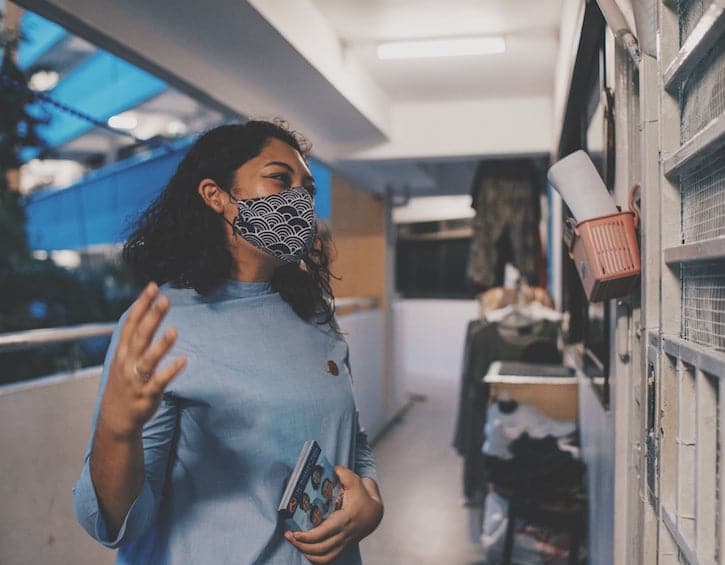

The results of GE2020 brought a lot of good about. We have a chance at a more balanced government with the opposing party clinching 10 seats in Parliament. Local gender equality-advocacy group AWARE pointed out that we now have an increase in the number of women in Parliament since GE2015 (nearly 30% of MPs!), with a fair bit of minority representation to boot.
It’s also worth noting that WP’s Raeesah Khan is the youngest elected MP in the 14th Parliament of Singapore at 26 years old, and is a mother herself. Despite her age, she’s incredibly accomplished – she started activism work at just 17, was once President of the Murdoch University Guild of Students and founded the Reyna Movement, helping marginalised women and children through upskilling programs and community engagement. Reading about her achievements, combined with the political buzz around me by fellow millennials, woke me up to the fact that I’m living through a truly historical moment. The voice of young people, including mine and those of our children, matters.
I’m hopeful that the demographic will actually translate into something actionable, where Members of Parliament (MPs), no matter the political party, will bring up real issues faced by disadvantaged communities and work towards creating an environment where everyone can thrive.
As a minority in Singapore, it’s not easy to bypass race and go about life as someone from the majority race would. My personal experiences with racism in Singapore may be minimal (or maybe I was just quick to brush most incidents off as they happened?), but it doesn’t change the fact that as a whole, minorities in Singapore face racism regularly. As evidenced by the heated discussions that took place here in Singapore (influenced by the Black Lives Matter movement in the US), talking about race in Singapore is still taboo even though we embrace multiculturalism. Some Singaporeans have yet to empathise with minorities on the micro-aggressions we face – job postings listed as targeting ‘Chinese-speaking only’ despite non-Chinese applicants being proficient in Mandarin; Muslim women wearing hijabs being asked to remove their scarves for work or risk not getting the job; discrimination faced by people of Indian descent when buying or renting homes…
Sure, there are more grave things happening around the world, but as long as we’re in Singapore, let’s start here. Moving forward, I’ll be watching closely for MPs to suggest anti-discrimination laws, and empower communities like those from low-income families, the disabled and the LGBTQ+ community. And I’m sure I won’t be the only one.
* swee: ‘nice’





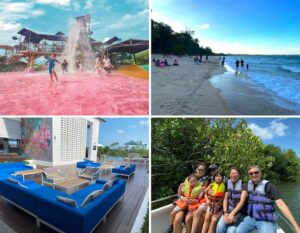
 View All
View All





 View All
View All








 View All
View All